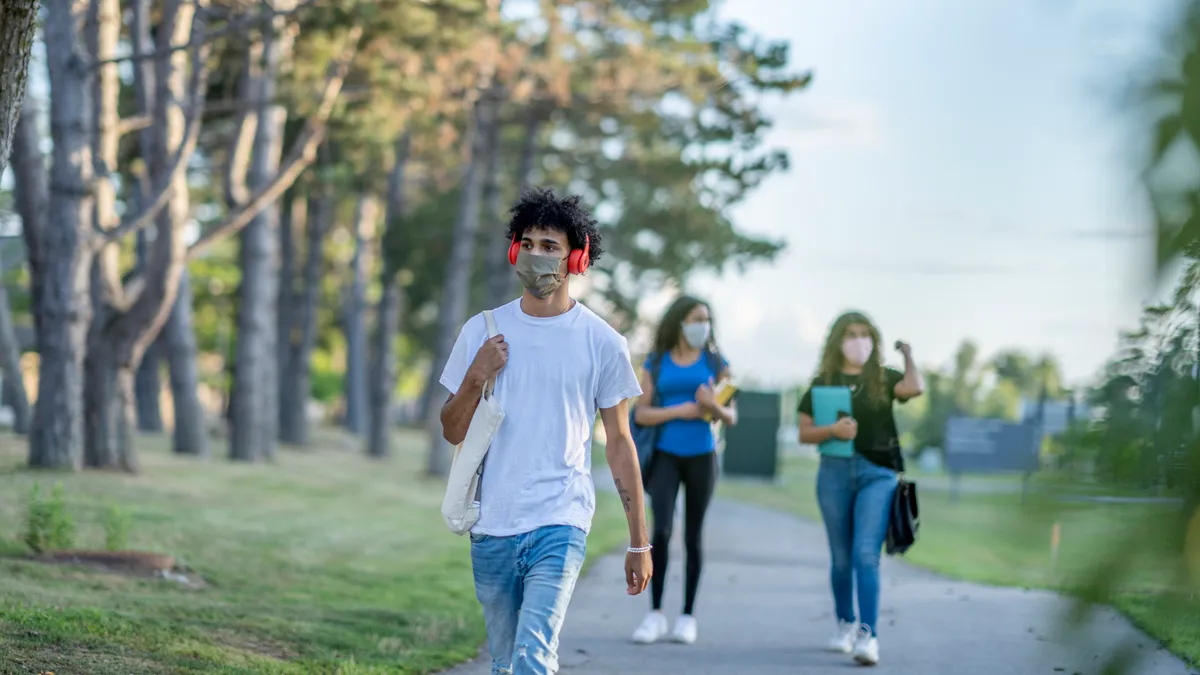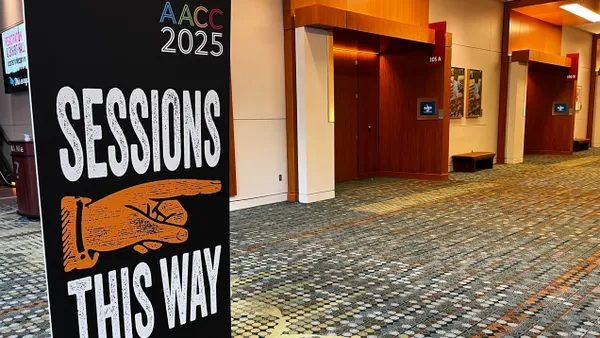Dive Brief:
- Six public higher education institutions are calling on students to help them address issues ranging from low completion rates to access challenges.
- The initiative, REP4, includes Grand Valley State, Boise State, Fort Valley State, San Jose State and Shippensburg universities, as well as Amarillo College.
- Participating colleges plan to pilot the most promising ideas developed, and the organizers hope to expand the program beyond the initial group.
Dive Insight:
The idea for REP4 stemmed from a six-week program held at Grand Valley State last summer, in which local high school students worked with the university's students and representatives to develop higher ed strategies. The university is piloting two of the programs.
REP4 builds on that premise, incorporating the six higher ed institutions from across the country and a few dozen high schools, said Grand Valley President Philomena Mantella. High school juniors and seniors will work in cohorts with "adult leads" from within each institution to develop ideas, she said. A national summit this summer will showcase the best proposals from across the institutions.
"Rather than trying the same thing, why not have learners who are in the middle of … their own challenges of managing education help us design fresh solutions, new ways of thinking about approaching what is an age-old problem in higher education?" Mantella said.
Institutions that participate in REP4 agree to sign on to pilot some of the ideas coming out of the summit, Mantella said. They're also asked to share what they've learned from the experience publicly.
Texas's Amarillo College, the only community college in the founding group of schools, plans to fold its work with REP4 into its existing recruitment and retention programming for male students, especially Black students, said Tamara Clunis, the college's vice president of academic affairs. Participants will offer feedback on how the college can improve its STEM education.
"We're trying to make sure that students can see themselves in the curriculum," Clunis said.
REP4 joins other consortia-like groups of institutions looking for shareable and scalable solutions to address inequity and access issues in higher ed.
The nonprofit Achieving the Dream recently launched a three-year effort with seven colleges to improve workforce development programming at rural institutions. Education Design Lab, a nonprofit, is working with five rural colleges to create new pathways into the institutions.
And more than 50 liberal arts colleges last year created an alliance to share ideas for fighting systemic racism and improving diversity and inclusion on their campuses.















